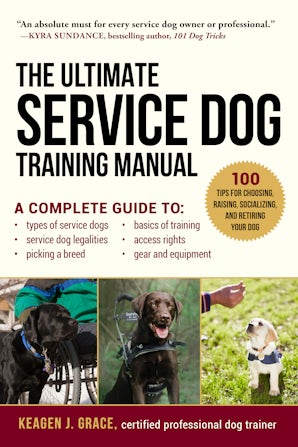Essential Pet Dog Training Tips for Raising a Well-Behaved Companion
Important strategies such as early socializing, the establishment of consistent commands, and the execution of favorable support can considerably affect a pet's actions and overall disposition. Recognizing canine habits is essential for tailoring training methods that reverberate with private pet dogs.
Understanding Pooch Behavior

In addition, socialization plays an important duty in shaping a pet dog's actions. Exposure to various environments, people, and other pets helps pet dogs develop confidence and reduces the likelihood of fear-based reactions. Early socializing is especially essential, as experiences during the critical growth period significantly affect a dog's long-term actions.
Additionally, recognizing the concepts of learning theory-- such as positive support, negative support, and penalty-- can boost training performance. Pet dogs are a lot more most likely to repeat habits that yield favorable end results. Therefore, utilizing constant, reward-based training methods cultivates a trusting relationship in between the pet and its trainer.

Standard Commands to Show
Educating fundamental commands is a crucial structure for reliable canine training and communication. Dog Training For Dogs. These commands not only help develop a clear line of interaction between you and your canine, but they additionally promote security and etiquette in different circumstances
Beginning with essential commands such as "Sit," "Keep," "Come," "Down," and "Heel." Each command offers a certain objective; for instance, "Sit" can aid relax an excited pet dog, while "Come" is essential for guaranteeing your pet dog returns to you when called.
When presenting a new command, make use of a clear and regular tone. Constantly couple the spoken command with a hand signal to strengthen understanding. Method in a quiet setting prior to progressively introducing disturbances. Gradually increase the period and range as your dog ends up being a lot more efficient.
Uniformity is essential; method regulates everyday to strengthen knowing, and make sure all family members make use of the same commands to prevent confusion. Keep in mind that persistence is necessary during this procedure, as different canines may find out at various speeds. Developing these standard commands advertises an unified partnership and sets the stage for advanced training in the future.
Positive Reinforcement Techniques
Favorable reinforcement techniques are highly efficient approaches for motivating preferred habits in canines. This training strategy entails satisfying your pet dog for exhibiting actions you want to enhance, therefore raising the likelihood of those habits being repeated. Rewards can take various kinds, including deals with, appreciation, or playtime, and must be customized to what motivates your canine most.
Timing is essential in positive reinforcement. Benefits ought to be offered immediately after the wanted behavior occurs to develop a clear association. If you want your pet to rest on command, compensate them as soon as they sit, ensuring they understand what action is being enhanced.
Uniformity is one more crucial element. Dog Training For Dogs. Utilize the exact same commands and benefits each time to avoid complication. Gradually, you can eliminate treats for even more periodic rewards, such as spoken praise, to keep the behavior without relying upon constant external reinforcement
Additionally, it is crucial to remain client imp source and avoid punishment, as unfavorable reinforcement can bring about fear and anxiety, eventually hindering training initiatives. By executing favorable reinforcement methods, you will certainly foster a relying on relationship with your pet dog, causing a well-behaved buddy.
Socialization and Communication
Socializing and interaction are essential facets of a dog's advancement that enhance favorable reinforcement methods. Very early exposure to diverse atmospheres, individuals, and various other animals is vital for fostering a well-adjusted animal. This procedure aids dogs develop confidence and flexibility, reducing the chance of behavioral concerns such as worry or aggressiveness.
Begin socializing throughout the crucial developmental home window, commonly in between three and fourteen weeks of age. Introduce your young puppy to various stimulations, including various audios, sights, and appearances. Enlist in pup courses or set up monitored playdates with other pets to encourage positive interactions.
As pet dogs expand, remain to subject them to different experiences. Tasks such as brows through to parks, pet-friendly shops, or area occasions can boost their social abilities and convenience degrees in unknown settings.
Always keep track of interactions to guarantee they are worry-free and favorable. If your pet shows indications of stress and anxiety or hostility, smoothly redirect them and permit gradual direct exposure at a you can try this out comfortable speed. With consistent socialization and communication, you prepared for a balanced, mannerly friend capable of growing in diverse social situations.
Uniformity in Training
Establishing consistency in training is essential for efficient communication between a pet and its owner. Pets flourish on clear and routine expectations, which assists them understand what habits is see page wanted.
Consistency likewise expands beyond commands; it includes the rules established within the house. As an example, if a pet dog is not permitted on the furnishings, this rule should be applied at all times. Blended signals can bring about behavior issues, as the pet dog might become unsure concerning what serves.
Additionally, all member of the family need to get on the same page relating to training strategies and commands. If someone compensates an actions while an additional scoldings it, the canine may end up being anxious and disoriented.
Final Thought
In final thought, executing crucial canine training pointers fosters a well-behaved buddy. Ultimately, these practices grow a trusting relationship in between the dog and its household, advertising an unified living atmosphere and a well-adjusted canine companion.
Crucial techniques such as early socializing, the facility of constant commands, and the application of favorable reinforcement can considerably affect a pet dog's habits and overall disposition. Recognizing canine actions is important for customizing training strategies that reverberate with specific canines.Comprehending canine behavior is necessary for reliable canine training. Pet dogs are more likely to duplicate behaviors that produce favorable end results.Positive support methods are extremely effective techniques for motivating desired habits in pets.